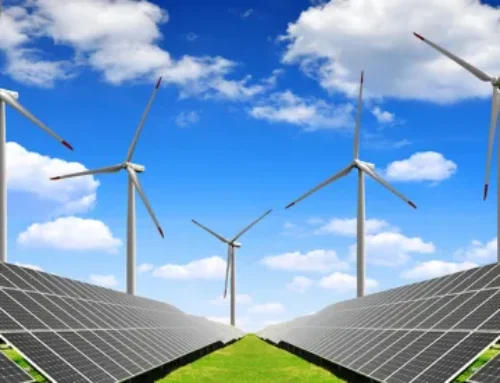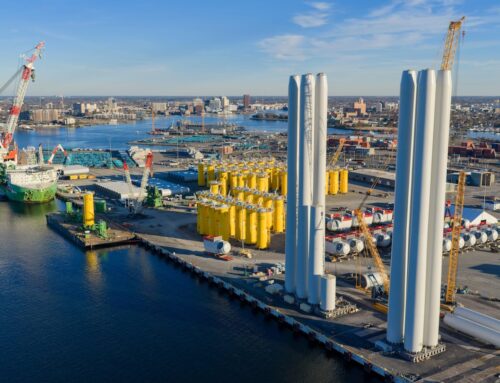BNamericas – Permitting reform key to Mexico’s renewable …
May 19, 2025

Mexico’s renewable energy industry is on the cusp of a surge in activity, after enduring an extended drought in investment during the administration of Andrés Manuel López Obrador (AMLO).
Claudia Sheinbaum, who succeeded AMLO in October 2024, is a former climate scientist who has vowed that renewable energy will generate as much as 45% of Mexico’s electricity by 2030, up from under 22% in 2024.
BNamericas speaks to Wilmar Suárez, Latin America analyst at global energy think tank Ember, about how Mexico’s electricity sector and its economy could benefit from Sheinbaum’s pivot to a cleaner energy system.
Suárez estimates that achieving a 45% share for clean generation by 2030 could help Mexico cut natural gas imports for electricity generation by 20% and save the country US$1.6bn per year. Meanwhile, installing the required 46GW of solar and wind power would create more than 430,000 jobs.
Political will and permitting reform will be critical if these ambitions are to be achieved, Suárez wrote in a report.
BNamericas: What are the renewable energy targets of the Sheinbaum administration?
Suárez: The government has proposed three scenarios for the share of clean energy in 2030: 36%, 38% with cogeneration and 45%. In her inaugural address, Sheinbaum said she was going to go for 45% of renewable energy, and she said renewable, not clean, which according to Mexican law also includes cogeneration, nuclear and some others.
In our report, we analyze the 36% and 45% scenarios, and we highlight the social and economic benefits of the 45% clean energy scenario.
BNamericas: Do you think it’s feasible for Mexico to get to 45% in five years?
Suárez: It is, but it depends heavily on the time it takes to obtain permits for implementing renewable energy projects. Currently, it takes three or four years to obtain permits in Mexico. To develop a project, it could take another three years on top of that.
If Mexico doesn’t create a better way to give permits to developers, the targets aren’t going to be feasible.
BNamericas: Will the new electricity laws help improve the permitting process?
Suárez: With the new energy laws, Mexico is still betting heavily on expanding installed capacity of combined-cycle plants, which means the government wants to continue to rely on natural gas for power generation. We argue that Mexico should reduce the time it takes for permits in order to increase the penetration of renewables.
The core focus of our report is energy security. Mexico relies heavily on US gas. It should be using its own resources. Solar and wind may be the best solution for decreasing Mexico’s dependence on US gas.
BNamericas: Could natural gas storage also help improve the security of supply?
Suárez: That would be more of a transitory measure. The future is not fossil fuels. The future should be about using renewables for power generation. If you compare the time and the cost of exploring for local natural gas, it may be better for Mexico to invest in renewables instead of investing in natural gas exploration and production.
BNamericas: Is Mexico’s transmission network ready for the promised increase in renewables?
Suárez: The transmission and distribution networks will have to be modernized, not only to support the new installed capacity of renewables, but also to have a well-balanced power system. Curtailments aren’t currently a problem. But if Mexico wants to increase the penetration of renewables and avoid curtailments, the transmission and distribution lines will need to be strengthened.
Mexico will also have to increase the amount of battery storage in order to have greater stability in the network and lower prices. With batteries, you can take advantage of all the electricity that is generated during the day to serve peak demand at 8pm or 9pm.
BNamericas: Do you expect costs to come down for end-users as a result of the increase in renewable energy generation?
Suárez: Yes, Mexico should experience a decrease in the cost of electricity generation. One concern that we focus on in our report is about what would happen if the price of natural gas imported from the US was to rise from its US$1.80/Mf3 average in 2024 to US$6.00/Mf3 or even higher. The price of electricity generation in Mexico would skyrocket.
With renewables, Mexico has more control because it doesn’t depend on an energy source imported from another country.
BNamericas: Do you think this policy shift makes Mexico more attractive to renewable energy companies?
Suárez: We expect Mexico to be an interesting country for investors, especially because of its solar resources and high wind speeds. One question is what the role of private companies will be in the power sector. [State utility] CFE is going to grow in importance under the new law. That means that the role of private companies could be restricted.
From my perspective, Mexico is an excellent country to move forward with renewable energies. It could create hundreds of thousands of direct and indirect jobs across the country. Political will is essential to create the necessary enabling conditions, such as making a more efficient and streamlined project licensing process.
Search
RECENT PRESS RELEASES
Related Post




